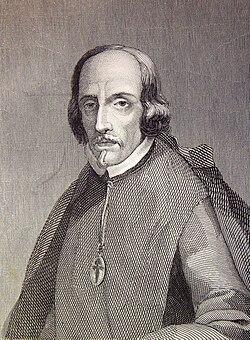Pedro Calderon de la Barca Quote
CLOTALDO. What then dost thou mean to do?ROSAURA. Kill the Duke.CLOTALDO. A gentle dame,Who no father's name doth know,Can she so much valour show?ROSAURA. Yes.CLOTALDO. What drives thee on?ROSAURA. My fame.CLOTALDO. Think that in the Duke thou'lt see . . . .ROSAURA. Honour all my wrath doth rouse.CLOTALDO. Soon thy king — Estrella's spouse.ROSAURA. No, by Heaven! it must not be.CLOTALDO. It is madness.ROSAURA. Yes, I see it.CLOTALDO. Conquer it.ROSAURA. I can't o'erthrow it.CLOTALDO. It will cost thee . . . .ROSAURA. Yes, I know it.CLOTALDO. Life and honour.ROSAURA. Well, so be it.CLOTALDO. What wouldst have?ROSAURA. My death.CLOTALDO. Take care!It is spite.ROSAURA. 'Tis honour's cure.CLOTALDO. 'Tis wild fire.ROSAURA. That will endure.CLOTALDO. It is frenzy.ROSAURA. Rage, despair.CLOTALDO. Can there then be nothing doneThis blind rage to let pass by?ROSAURA. No.
CLOTALDO. What then dost thou mean to do?ROSAURA. Kill the Duke.CLOTALDO. A gentle dame,Who no father's name doth know,Can she so much valour show?ROSAURA. Yes.CLOTALDO. What drives thee on?ROSAURA. My fame.CLOTALDO. Think that in the Duke thou'lt see . . . .ROSAURA. Honour all my wrath doth rouse.CLOTALDO. Soon thy king — Estrella's spouse.ROSAURA. No, by Heaven! it must not be.CLOTALDO. It is madness.ROSAURA. Yes, I see it.CLOTALDO. Conquer it.ROSAURA. I can't o'erthrow it.CLOTALDO. It will cost thee . . . .ROSAURA. Yes, I know it.CLOTALDO. Life and honour.ROSAURA. Well, so be it.CLOTALDO. What wouldst have?ROSAURA. My death.CLOTALDO. Take care!It is spite.ROSAURA. 'Tis honour's cure.CLOTALDO. 'Tis wild fire.ROSAURA. That will endure.CLOTALDO. It is frenzy.ROSAURA. Rage, despair.CLOTALDO. Can there then be nothing doneThis blind rage to let pass by?ROSAURA. No.
Related Quotes
The confusion boys experience about their identity is heightened during adolescence. In many ways the fact that today's boy often has a wider range of emotional expression in early childhood, but if f...
About Pedro Calderon de la Barca
Calderón de la Barca was born into the minor Spanish nobility in Madrid, where he lived for most of his life. He served as soldier and a knight of the military and religious Order of Santiago, but later became a Roman Catholic priest. His theatrical debut was a history play about the life of King Edward III of England, was first performed on 29 June 1623 at the Royal Alcázar of Madrid, during the surprise visit to Spain of Charles, Prince of Wales to negotiate for a dynastic marriage alliance with the Spanish Habsburgs.
As he continued writing verse dramas, Calderón's favorite theatrical genres included mystery plays illustrating the doctrines of Transubstantiation and the Real Presence for performance during the Feast of Corpus Christi and both comedy of intrigue and tragic theatre rooted in many of the same plot devices as Shakespeare's plays and in ethical dilemmas under the Spanish nobility's code of honour. Born while the unwritten rules of Spanish Golden Age theatre were still being defined by Lope de Vega, Calderón pushed their limits even further by introducing radical and pioneering innovations that are now termed metafiction and surrealism.
His masterpiece, La Vida es Sueño ("Life is a Dream"), combines a beauty and the beast plotline, a disguised woman reminiscent of Viola from Shakespeare's Twelfth Night, surrealist concepts, romantic complications, and the threat of a dynastic civil war, while exploring the philosophical question of whether each individual's fate has already been written without their involvement or if the future can be altered by free will.
Calderón's poetry and plays have since wielded an enormous global influence upon Romanticism, symbolism, literary modernism, expressionism, dystopian science fiction, and even postmodernism. His many admirers have included August Wilhelm Schlegel, Johann Wolfgang von Goethe, John Dryden, Lord Byron, Percy Bysshe Shelley, Fr. Félix Sardà y Salvany, Hugo von Hoffmannsthal, Vyacheslav Ivanov, Jorge Luis Borges, Konstantin Stanislavsky, and Boris Pasternak.
In 1881, the Royal Spanish Academy awarded a gold medal to Irish poet Denis Florence MacCarthy for his highly praised and accurate literary translations of Calderón's verse dramas into English. In 2021, a renewed search for Calderón's missing remains gained media attention worldwide.
